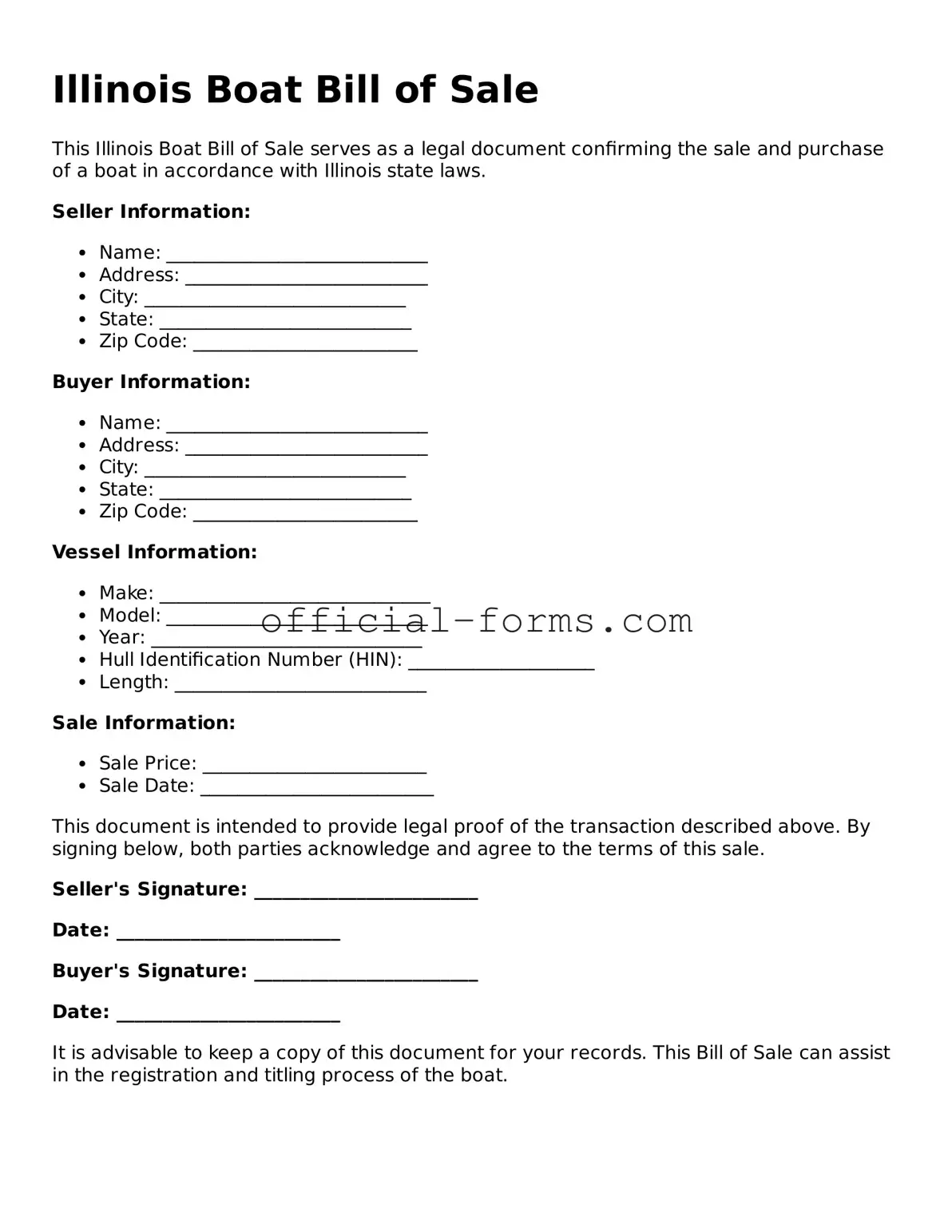Official Illinois Boat Bill of Sale Document
The Illinois Boat Bill of Sale form is a crucial document that serves as proof of the transfer of ownership for a boat in the state of Illinois. This form outlines the details of the sale, including information about the buyer, seller, and the vessel itself. Understanding how to properly complete this form can help ensure a smooth transaction and protect the interests of both parties involved.
Open My Boat Bill of Sale Now

Official Illinois Boat Bill of Sale Document
Open My Boat Bill of Sale Now
Don’t leave your form incomplete
Finish Boat Bill of Sale online quickly from start to download.
Open My Boat Bill of Sale Now
or
➤ PDF
